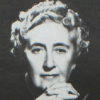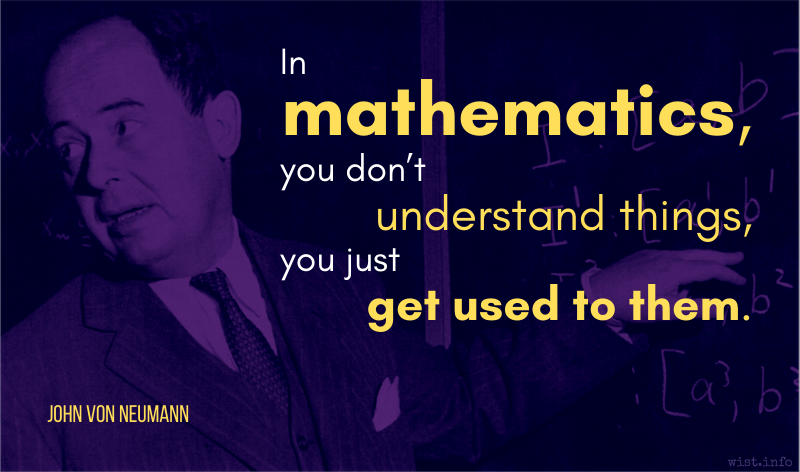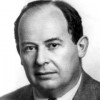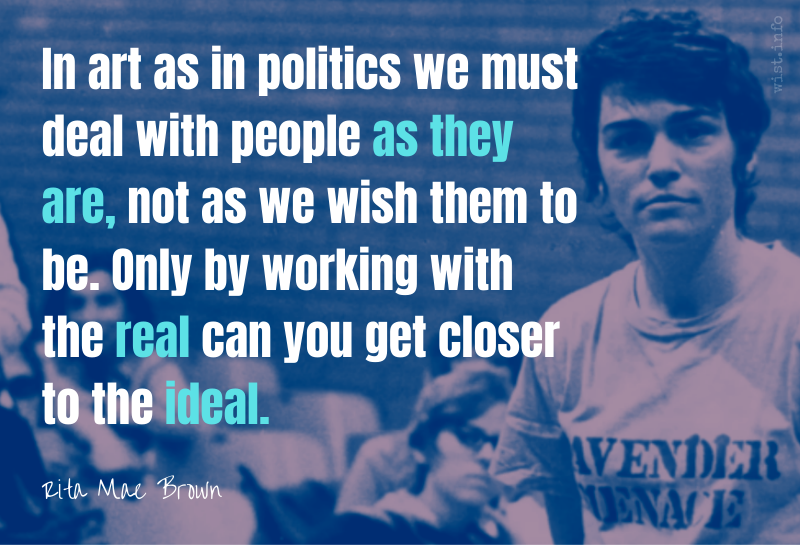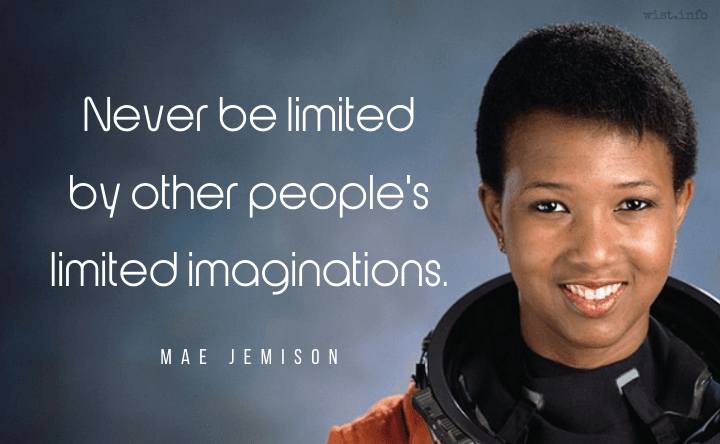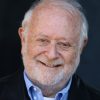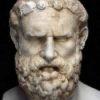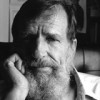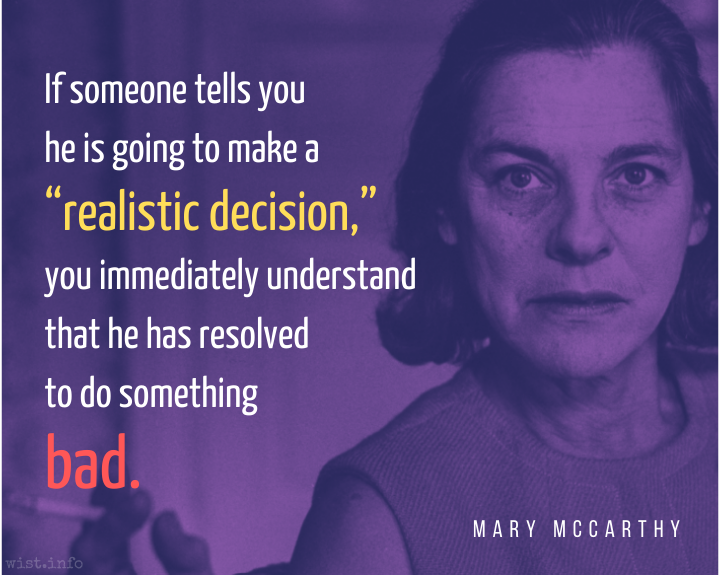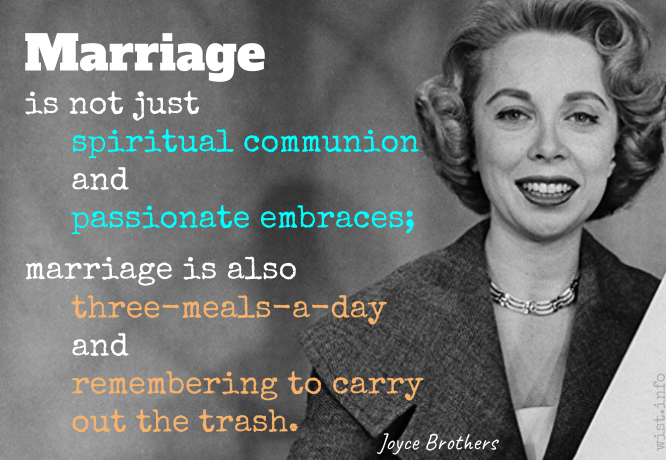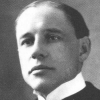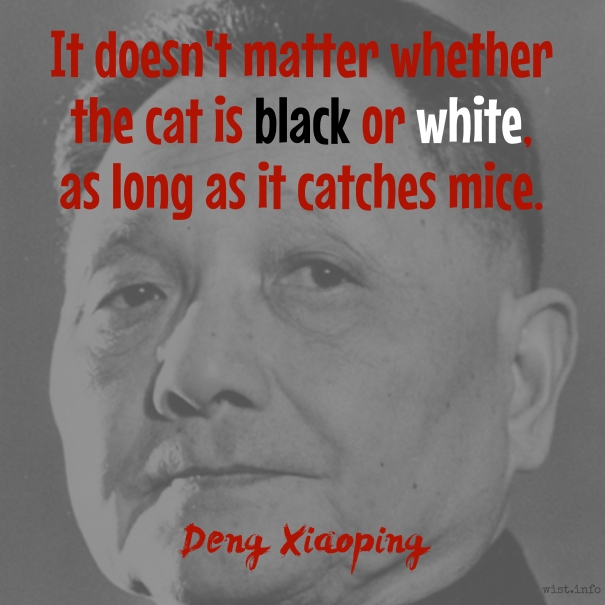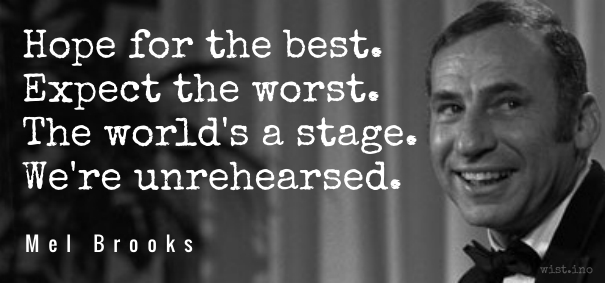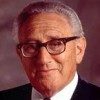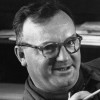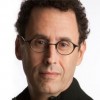And it is not always because of valour or chastity that men are valiant or women chaste.
[Et ce n’est pas toujours par valeur et par chasteté que les hommes sont vaillants et que les femmes sont chastes.]François VI, duc de La Rochefoucauld (1613-1680) French epigrammatist, memoirist, noble
Réflexions ou sentences et maximes morales [Reflections; or Sentences and Moral Maxims], ¶1 (1665-1678) [tr. Tancock (1959)]
(Source)
Introduced in the 4th ed. (1665).
(Source (French)). Alternate translations:
It may be further affirmed, that Valour in Men, and Chastity in Women, two qualifications which make so much noise in the World, are the products of Vanity and Shame, and principally of their particular Temperaments.
[tr. Davies (1669), ¶94]
And we are much mistaken, if we think that Men are always stout from a principle of Valour, or Women chast from a principle of Modesty.
[tr. Stanhope (1694)]
It is not always from the principles of valour and chastity that men are valiant, and that women are chaste.
[pub. Donaldson (1783), ¶446]
It is not always from valor and from chastity that men are valiant, and that women are chaste.
[ed. Gowens (1851), ¶2]
It is not always from valour or from chastity that men are brave, and women chaste.
[tr. Bund/Friswell (1871)]
Men are not always brave because courageous, nor women chaste because virtuous.
[tr. Heard (1917)]
So it is not always courage that makes the hero, nor modesty the chaste woman.
[tr. Stevens (1939)]
It is not always valor which makes men valiant, nor chastity that renders women chaste.
[tr. FitzGibbon (1957)]
And it is not always through valor and chastity that men are valiant and women chaste.
[tr. Kronenberger (1959)]
It is not always because of bravery or chastity that men are brave, and women chaste.
[tr. Whichello (2016)]
Quotations about:
pragmatism
Note not all quotations have been tagged, so Search may find additional quotes on this topic.
It may be that we have become so feckless as a people that we no longer care how things do work, but only what kind of quick, easy outer impression they give. If so, there is little hope for our cities or probably for much else in our society. But I do not think this is so.
Jane Jacobs (1916-2006) American-Canadian journalist, author, urban theorist, activist
The Death and Life of Great American Cities, Introduction (1961)
(Source)
In order to not find life unbearable, you must accept two things: the ravages of time, and the injustices of man.
[Il y a deux choses auxquelles il faut se faire, sous peine de trouver la vie insupportable. Ce sont les injures du tems et les injustices des hommes.]Nicolas Chamfort (1741-1794) French writer, epigrammist (b. Nicolas-Sébastien Roch)
Products of Perfected Civilization [Produits de la Civilisation Perfectionée], Part 1 “Maxims and Thoughts [Maximes et Pensées],” ch. 2, ¶ 115 (1795) [tr. Parmée (2003), ¶ 95]
(Source)
(Source (French)). Alternate translations:
There are two things to which we must become inured on pain of finding life intolerable: the outrages of time and man's injustice.
[tr. Mathers (1926)]
There are two things that one must get used to or one will find life unendurable: the damages of time and the injustices of men.
[tr. Merwin (1969)]
There are two things that a man must reconcile himself to, or he will find life unbearable: they are the injuries of time and the injuries of men.
[tr. Siniscalchi (1994)]
It is the head that governs men. A kind heart is of no use in a chess game.
[On gouverne les hommes avec la tête. On ne joue pas aux échecs avec un bon cœur.]
Nicolas Chamfort (1741-1794) French writer, epigrammist (b. Nicolas-Sébastien Roch)
Products of Perfected Civilization [Produits de la Civilisation Perfectionée], Part 1 “Maxims and Thoughts [Maximes et Pensées],” ch. 8, ¶ 522 (1795) [tr. Merwin (1969)]
(Source)
(Source (French)). Alternate translations:
People are governed with the head; kindness of heart is little use in chess.
[tr. Mathers (1926)]
Men are governed using the head. A kind heart is useless in a chess game.
[tr. Dusinberre (1992)]
A person governs men with his head. One does not play chess with goodness of heart.
[tr. Siniscalchi (1994), ¶ 521]
FOOL: That sir which serves and seeks for gain,
And follows but for form,
Will pack when it begins to rain
And leave thee in the storm.
But I will tarry; the Fool will stay,
And let the wise man fly.
The knave turns fool that runs away;
The Fool, no knave, perdy.William Shakespeare (1564-1616) English dramatist and poet
King Lear, Act 2, sc. 4, l. 84ff (2.4.84-91) (1606)
(Source)
Perdie, perdy: "by God" (from the French par Dieu].
DEAR MISS MANNERS: What is the proper way to eat potato chips?
GENTLE READER: With a knife and fork. A fruit knife and an oyster fork, to be specific. Good heavens, what is the world coming to? Miss Manners does not mind explaining the finer points of gracious living, but she feels that anyone without the sense to pick up a potato chip and stuff it in their face should probably not be running around loose on the streets.
Convictions no doubt have to be modified or expanded to meet changing conditions […] but to be a reliable political leader sooner or later your anchors must hold fast where other men’s drag.
Margot Asquith (1864-1945) British socialite, author, wit [Emma Margaret Asquith, Countess Oxford and Asquith; Margot Oxford; née Tennant]
More or Less about Myself, ch. 3 (1934)
(Source)
I’ve a theory that one can always get anything one wants if one will pay the price. And do you know what the price is, nine times out of ten? Compromise.
Agatha Christie (1890-1976) English writer
The Secret of Chimneys, ch. 22 [Anthony Cade] (1925)
(Source)
The man who has stolen in order never to thieve again remains a thief. Nobody who has ever betrayed his principles can have a pure relationship with life. Therefore when a film-maker says he will produce a pot-boiler in order to give himself the strength and the means to make the film of his dreams — that is so much deception, or worse, self-deception. He will never now make his film.
Andrei Tarkovsky (1932-1986) Russian film director, screenwriter, film theorist [Андрей Арсеньевич Тарковский]
Sculpting in Time (1986) [tr. Hunter-Blair]
(Source)
The beautiful thing about losing your illusions, he thought, was that you got to stop pretending.
Daniel Abraham (b. 1969) American writer [pseud. James S. A. Corey (with Ty Franck), M. L. N. Hanover]
Leviathan Wakes, ch. 18 (2011) [with Ty Franck]
(Source)
Independence was an act of revolution; republicanism was something new under the sun; the federal system was a vast experimental laboratory. Physically Americans were pioneers; in the realm of social and economic institutions, too, their tradition has been one of pioneering. From the beginning, intellectual and spiritual diversity have been as characteristic of America as racial and linguistic. The most distinctively American philosophies have been transcendentalism — which is the philosophy of the Higher Law — and pragmatism — which is the philosophy of experimentation and pluralism. These two principles are the very core of Americanism: the principle of the Higher Law, or of obedience to the dictates of conscience rather than of statutes, and the principle of pragmatism, or the rejection of a single good and of the notion of a finished universe. From the beginning Americans have known that there were new worlds to conquer, new truths to be discovered. Every effort to confine Americanism to a single pattern, to constrain it to a single formula, is disloyalty to everything that is valid in Americanism.
Some free advice for you: Never fight an old man. They’ve been there, done that, written the book, made and starred in the movie, designed the T-shirt, and they’ve got no ego at all about how the fight gets won.
The moral case for intervention is only as strong as the practicality of the mission itself. There is no moral case for doing something you’re not capable of doing.
Dexter Filkins (b. 1961) American journalist
“The Moral Logic of Humanitarian Intervention,” New Yorker (16 Sep 2019)
(Source)
In mathematics, you don’t understand things, you just get used to them.
John von Neumann (1903-1957) Hungarian-American mathematician, physicist, inventor, polymath [János "Johann" Lajos Neumann]
(Attributed)
The primary source for this comes from Gary Zukav, The Dancing Wu Li Masters: An Overview of the New Physics (1979), in a footnote on p. 208, related to von Neumann's time working on the H-bomb.
Dr. Felix Smith, Head of Molecular Physics, Stanford Research Institute, once related to me the true story of a physicist friend who worked at Los Alamos after World War II. Seeking help on a difficult problem, he went to the great Hungarian mathematician, John von Neumann, who was at Los Alamos as a consultant.
"Simple," said von Neumann. "The can be solved by using the method of characteristics."
After the explanation, the physicist said, "I'm afraid I don't understand the method of characteristics."
"Young man," said von Neumann, "in mathematics you don't understand things, you just get used to them."
David Wells offers a variant in The Penguin Book of Curious and Interesting Mathematics (1997):
Van Neumann had just about ended his lecture when a student stood up and in a vaguely abashed tone said he hadn't understood the final argument. Von Neumann answered: "Young man, in mathematics you don't understand things. You just get used to them.
Variant: "Don't worry, young man: in mathematics, none of us really understands any idea -- we just get used to them."
You are right in assuming that I am indifferent to the pattern of things. I am. I have never liked stale phrases and bodyless courage. I have the nerve to walk my own way, however hard, in my search for reality, rather than climb upon the rattling wagon of wishful illusions.
Zora Neale Hurston (1891-1960) American writer, folklorist, anthropologist
Letter to Countee Cullen (5 Mar 1943)
(Source)
In art as in politics we must deal with people as they are, not as we wish them to be. Only by working with the real can you get closer to the ideal.
Rita Mae Brown (b. 1944) American author, playwright
In Her Day, Preface, “A Note to the Feminist Reader” (1976)
(Source)
Never be limited by other people’s limited imaginations. There were people who said, “You can’t go into space. You can’t go to the moon.” If you adopt their attitudes, then the possibility won’t exist because you’ll have already shut it out. Yes, you can hear other people’s wisdom, but you’ve got to re-evaluate the world for yourself.
Mae Jemison (b. 1956) American engineer, physician, astronaut
Interview, Chicago Sun-Times (May 1994)
(Source)
We give the highest and the most peculiar praise to the precepts of Machiavelli, when we say that they may frequently be of real use in regulating conduct — not so much because they are more just, or more profound, than those which might be culled from other authors as because they can be more readily applied to the problems of real life.
Some Saian mountaineer
Struts today with my shield.
I threw it down by a bush and ran
When the fighting got hot.
Life seemed somehow more precious.
It was a beautiful shield.
I know where I can buy another
Exactly like it, just as round.Archilochus (c. 680-645 BC) Greek lyric poet and mercenary [Ἀρχίλοχος, Archilochos, Arkhilokhus]
Fragment 79 [tr. Davenport (1964)]
(Source)
Fragment from Plutarch, "Laws and Customs of the Lacedaemonians". Alt. trans.:Identified elsewhere as Fragment 6.
- "Let who will boast their courage in the field, / I find but little safety from my shield. / Nature's, not honour's, law we must obey: / This made me cast my useless shield away, / And, by a prudent flight and cunning, save / A life, which valour could not, from the grave. / A better buckler I can soon regain; / But who can get another life again?" [tr. Pulleyn (18th C)]
- "A Saian boasts about the shield which beside a bush / though good armour I unwillingly left behind. / I saved myself, so what do I care about the shield? / To hell with it! I'll get one soon just as good." ["To my shield" (D6, 5W)]
- "I don't give a damn if some Thracian ape struts / Proud of that first-rate shield the bushes got. / Leaving it was hell, but in a tricky spot / I kept my hide intact. Good shields can be bought." [tr. Silverman]
- "Some barbarian is waving my shield, since I was obliged to leave that perfectly good piece of equipment behind under a bush. But I got away, so what does it matter? Life seemed somehow more precious. Let the shield go; I can buy another one equally good." [tr. Lattimore (1955)]
Anarchism is not a romantic fable but the hardheaded realization, based on five thousand years of experience, that we cannot entrust the management of our lives to kings, priests, politicians, generals, and county commissioners.
Edward Abbey (1927-1989) American anarchist, writer, environmentalist
A Voice Crying in the Wilderness, ch. 3 “Government and Politics” (1989)
(Source)
If someone tells you he is going to make a “realistic decision,” you immediately understand that he has resolved to do something bad.
Mary McCarthy (1912-1989) American author, critic, political activist
“American Realist Playwrights,” On the Contrary (1961)
(Source)
Reason allows us to determine when our wishes are in irrevocable conflict with reality, and then bids us to submit ourselves willingly, rather than angrily or bitterly, to necessities. We may be powerless to alter certain events, but we remain free to choose our attitude towards them, and it is in our spontaneous acceptance of necessity that we find our distinctive freedom.
Alain de Botton (b. 1969) Swiss-British author
The Consolations of Philosophy, ch. 3 “Consolation for Frustration”(2000)
(Source)
What Mr. Howells said of the American theater is true of the whole American attitude toward life. “A tragedy with a happy ending” is exactly what the child wants before he goes to sleep: the reassurance that “all’s well with the world” as he lies in his cozy nursery. It is a good thing that the child should receive this reassurance; but as long as he needs it he remains a child, and the world he lives in is a nursery-world. Things are not always and everywhere well with the world, and each man has to find it out as he grows up. It is the finding out that makes him grow, and until he has faced the fact and digested the lesson he is not grown up — he is still in the nursery.
Edith Wharton (1862-1937) American novelist
French Ways and Their Meaning, ch. 4 “Intellectual Honesty” (1919)
(Source)
Commenting on William Dean Howells' comment to her on American taste in theater and drama: "What the American public wants is a tragedy with a happy ending."
Love is a great force in private life; it is indeed the greatest of all things: but love in public affairs simply does not work. It has been tried again and again: by the Christian civilisations of the Middle Ages, and also by the French Revolution, a secular movement which reasserted the Brotherhood of Man. And it has always failed. The idea that nations should love one another, or that business concerns or marketing boards should love one another, or that a man in Portugal, say, should love a man in Peru of whom he has never heard—it is absurd, it is unreal, worse, it is dangerous. It leads us into perilous and vague sentimentalism. “Love is what is needed,” we chant, and then sit back and the world goes on as before. The fact is we can only love what we know personally. And we cannot know much. In public affairs, in the rebuilding of civilisation, something much less dramatic and emotional is needed, namely, tolerance.
E. M. Forster (1879-1970) English novelist, essayist, critic, librettist [Edward Morgan Forster]
“The Unsung Virtue of Tolerance,” radio broadcast (Jul 1941)
(Source)
Published as "Tolerance," Two Cheers for Democracy (1951)
A wise man weaves a philosophy out of each acceptance life forces upon him.
When all is said and all is done,
When all is lost or all is won —
In spite of musty theory,
Of purblind faith and vain conceit,
Of barren creed and sophistry:
In spite of all — success, defeat,
The Judge accords to worst and best,
Impartially, this final test:
What hast thou done with brawn and brain,
To help the world to lose or gain
An onward step? Canst reckon one
Unselfish, brave or noble deed,
That thou — nor counting cost! Hast done
To help a brother’s crying need?
Not what professed nor what believed —
But what good thing hast thou achieved?
DRUMLIN: I know you must think this is all very unfair. Maybe that’s an understatement. What you don’t know is I agree. I wish the world was a place where fair was the bottom line, where the kind of idealism you showed at the hearing was rewarded, not taken advantage of. Unfortunately, we don’t live in that world.
ARROWAY: Funny, I’ve always believed that the world is what we make of it.
Carl Sagan (1934-1996) American scientist and writer
Contact, novel (1997) [film screenplay by J. Hart and M. Goldenberg]
(Source)
Lady Maccon cast her hands heavenward, although there was no one up there for her to appeal to. It was an accepted fact that preternaturals had no spiritual recourse, only pragmatism. Alexia didn’t mind; the latter had often gotten her out of sticky situations, whereas the former seemed highly unreliable when one was in a bind.
It doesn’t matter whether the cat is black or white, as long as it catches mice.
LADY MACBETH: Whither should I fly?
I have done no harm. But I remember now
I am in this earthly world; where to do harm
Is often laudable, to do good sometime
Accounted dangerous folly.William Shakespeare (1564-1616) English dramatist and poet
Macbeth, Act 4, sc. 2, l. 81ff (4.2.81-85) (1606)
(Source)
One should never forbid what one lacks the power to prevent.
Napoleon Bonaparte (1769-1821) French emperor, military leader
(Attributed)
An aphorism he frequently used. See Sophocles.
What I particularly admire in him is the firm stand he has taken, not only against the oppressors of his countrymen, but also against those opportunists who are always ready to compromise with the Devil. He perceives very clearly that the world is in greater peril from those who tolerate or encourage evil than from those who actually commit it.
[Was ich aber an ihm besonders bewundere ist seine charaktervolle Haltung nicht nur gegen die Unterdrücker seines Volkes, sondern auch gegen alle diejenigen Opportunisten, die immer bereit sind, mit dem Teufel zu paktieren. Er hat klar erkannt, dass die Welt mehr bedroht ist durch die, welche das Uebel dulden oder ihm Vorschub leisten, als durch die Uebeltäter selbst.]
Albert Einstein (1879-1955) German-American physicist
In Josep Maria Corredor, Conversations avec Pablo Casals [Conversations with Casals], Preface (1955) [tr. Mangeot (1956)]
(Source)
The last part of the last sentence here is most frequently quoted. The text is from a letter Einstein wrote to Corredor about Pablo Casals, the Spanish cellist (30 Mar 1953), of which part was included in the Preface. The book of interviews with Casals was originally published in French, and used this translation to that language:
Ce que j’admire cependant particulièrement en lui, c’est sa ferme attitude non seulement à l’endroit des oppresseurs de son peuple, mais également à l’endroit des opportunistes toujours prêts à pactiser avec le diable. Il a su comprendre avec beaucoup de clairvoyance que le monde court un plus grand danger de la part de ceux qui tolèrent le mal ou l’encouragent que de la part de ceux-là mêmes qui le commettent.
Variants / paraphrases:More discussion and background of this quotation:
- "The world is a dangerous place, not because of those who do evil, but because of those who look on and do nothing."
- "The world is too dangerous to live in, not because of people’s evil deeds but because of those who sit and let it happen."
- "The world is a dangerous place not because there are so many evil people in it, but because there are so many good ones willing to sit back and let evil happen."
- "The world is not dangerous because of those who do harm. It’s dangerous because of those who watch and do nothing."
- "The world will not be destroyed by those who do evil, but by those who watch them without doing anything."
- The World Is in Greater Peril from Those Who Tolerate or Encourage Evil Than from Those Who Actually Commit It – Quote Investigator.
- ZITATFORSCHUNG: "Die Welt wird nicht bedroht von den Menschen, die böse sind, sondern von denen, die das Böse zulassen." Albert Einstein (angeblich).
- Juttas Zitateblog: Die Welt wird nicht bedroht von den Menschen, die böse sind, sondern von denen, die das Böse zulassen.
Philosophy, brought afresh to repute by Kant […] had soon become a tool of interests; of state interests […] The driving forces of this movement are, contrary to all these solemn airs and assertions, not ideal […] Party interests are vehemently agitating the pens of so many purer lovers of wisdom […] truth is certainly the last thing they have in mind […] Philosophy is misused, from the side of the state as tool, from the other side as means of gain […] Governments make of philosophy a means of serving their state interests, and scholars make of it a trade.
Arthur Schopenhauer (1788-1860) German philosopher
(Attributed)
(Source)
Criticizing Hegel and Hegelianism, and the latter's state-philosophy alliance. Attributed in Karl Popper, The Open Society and Its Enemies, ch. 12 (1945).
America — a conservative country without any conservative ideology — appears now before the world a naked and arbitrary power, as, in the name of realism, its men of decision enforce their often crackpot definitions upon world reality. The second-rate mind is in command of the ponderously spoken platitude. In the liberal rhetoric, vagueness, and in the conservative mood, irrationality, are raised to principle. Public relations and the official secret, the trivializing campaign and the terrible fact clumsily accomplished, are replacing the reasoned debate of political ideas in the privately incorporated economy, the military ascendancy, and the political vacuum of modern America.
C. Wright Mills (1916-1962) American sociologist, academic, author [Charles Wright Mills]
The Power Elite, ch. 14 “The Conservative Mood” (1956)
(Source)
Listen, here’s the thing about politics: It’s not an expression of your moral purity and your ethics and your probity and your fond dreams of some utopian future. Progressive people constantly fail to get this.
Tony Kushner (b. 1956) American playwright and screenwriter
Interview with Ben Greenman, “Tony Kushner, Radical Pragmatist,” Mother Jones (Nov/Dec 2003)
(Source)
Saints can be pure but statesmen must be responsible. As trustees for others, they must defend interests and compromise principles. In politics, practical and prudential judgment must have priority over moral verdicts.
He didn’t say “That’s weird.” He wouldn’t have said “That’s weird” if a flock of sheep had cycled past playing violins. It wasn’t the sort of thing a responsible engineer said.
Terry Pratchett (1948-2015) English author
Good Omens, 4. “Thursday” (1990) [with Neil Gaiman]
(Source)
It is a human inclination to hope things will work out, despite evidence or doubt to the contrary. A successful manager must resist this temptation. This is particularly hard if one has invested much time and energy on a project and thus has come to feel possessive about it. Although it is not easy to admit what a person once thought correct now appears to be wrong, one must discipline himself to face the facts objectively and make the necessary changes — regardless of the consequences to himself. The man in charge must personally set the example in this respect. He must be able, in effect, to “kill his own child” if necessary and must require his subordinates to do likewise.
Hyman Rickover (1900-1986) US Navy Admiral
Quoted in T. Rockwell, The Rickover Effect, Part 3, ch. 2, epigraph (1992)
(Source)
What doth it profit, my brethren, though a man say he hath faith, and have not works? Can faith save him? If a brother or sister be naked, and destitute of daily food, and one of you say unto them, Depart in peace, be ye warmed and filled; notwithstanding ye give them not those things which are needful to the body; what doth it profit? Even so faith, if it hath not works, is dead, being alone. Yea, a man may say, Thou hast faith, and I have works: shew me thy faith without thy works, and I will shew thee my faith by my works.
The Bible (The New Testament) (AD 1st - 2nd C) Christian sacred scripture
James 2:14-18 (KJV)
(Source)
Alt. trans.:
- "What good is it, my brothers and sisters, if you say you have faith but do not have works? Can faith save you? If a brother or sister is naked and lacks daily food, and one of you says to them, “Go in peace; keep warm and eat your fill,” and yet you do not supply their bodily needs, what is the good of that? 17 So faith by itself, if it has no works, is dead. But someone will say, “You have faith and I have works.” Show me your faith apart from your works, and I by my works will show you my faith." (NRSV)
- "My friends, what good is it for one of you to say that you have faith if your actions do not prove it? Can that faith save you? Suppose there are brothers or sisters who need clothes and don't have enough to eat. What good is there in your saying to them, “God bless you! Keep warm and eat well!”—if you don't give them the necessities of life? So it is with faith: if it is alone and includes no actions, then it is dead. But someone will say, “One person has faith, another has actions.” My answer is, “Show me how anyone can have faith without actions. I will show you my faith by my actions.” " (GNT)
Whenever people say “we mustn’t be sentimental,” you can take it they are about to do something cruel. And if they add, “we must be realistic,” they mean they are going to make money out of it.
Brigid Brophy (1929-1995) Anglo-Irish writer, novelist, playwright
Unlived Life
HAYWOOD: There are those in our own country, too, who today speak of the protection of country, of survival. A decision must be made, in the life of every nation, at the very moment when the grasp of the enemy is at its throat, when it seems the only way to survive is to use the means of the enemy, to rest survival upon what is expedient. To look the other way. Only the answer to that is: Survival as what?
HENRY: Are these things then necessities?
Then let us meet them like necessities.William Shakespeare (1564-1616) English dramatist and poet
Henry IV, Part 2, Act 3, sc. 1, l. 94ff (3.1.94-95) (c. 1598)
(Source)







